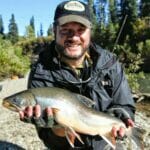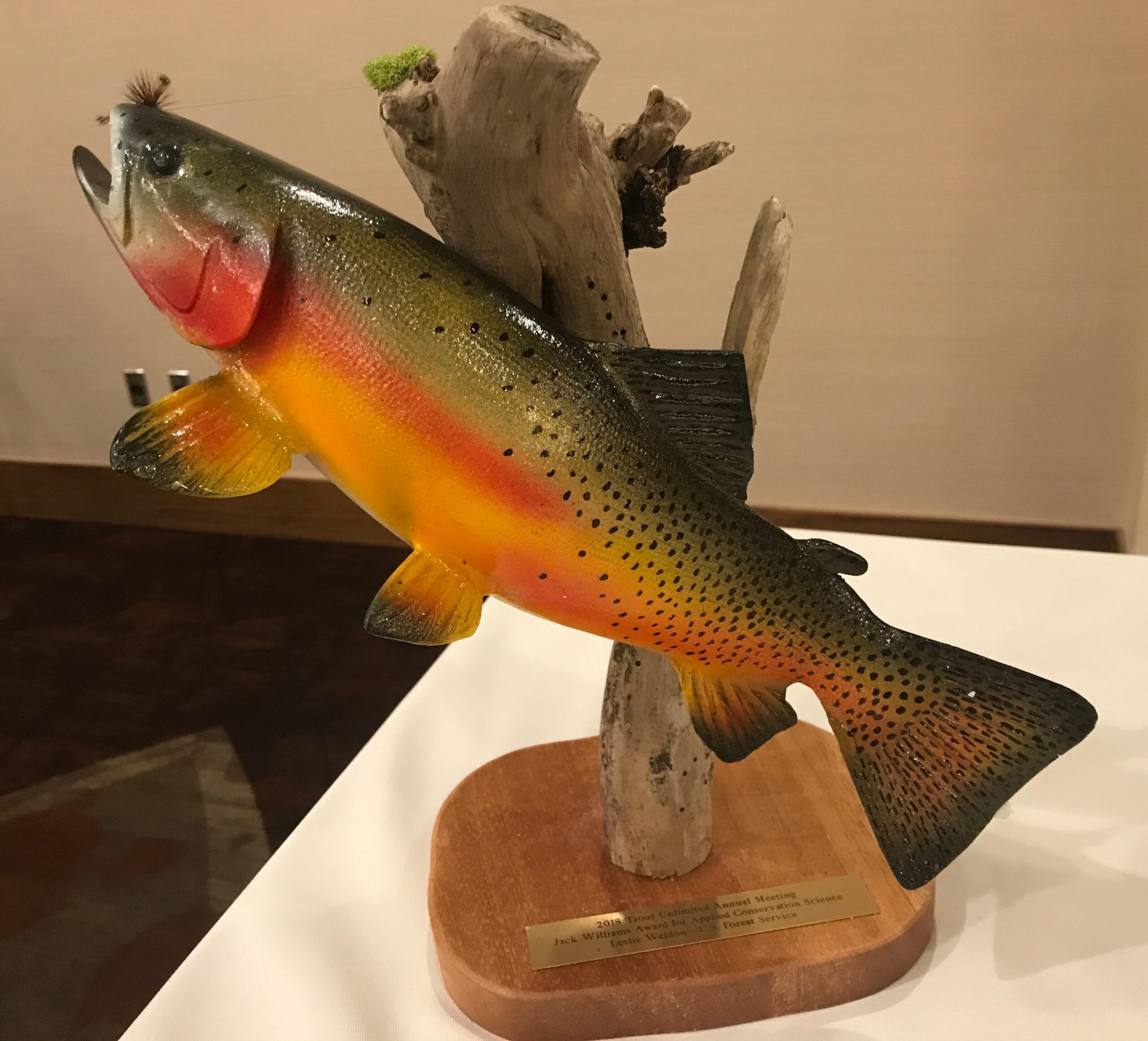Recognizing Trout Unlimited’s amazing chapters, volunteers and partners is one of the most important parts of our organization’s annual meeting.
This year in Redding, California, two chapters, five volunteers and four partners were singled out for their contributions to Trout Unlimited efforts across the nation. TU’s national conservation awards have been a part of our heritage since the early 1960s.
Congratulations to each of the award winners this year and thanks to all our volunteers and partners for the dedication and passion for conservation. We could not live up to our mission without you.
Here’s a list of the award winners and a description of why they were selected from the 2018 National Conservation Awards program.
Gold Trout Award — Deerfield River Watershed Chapter – #349 in Massachusetts
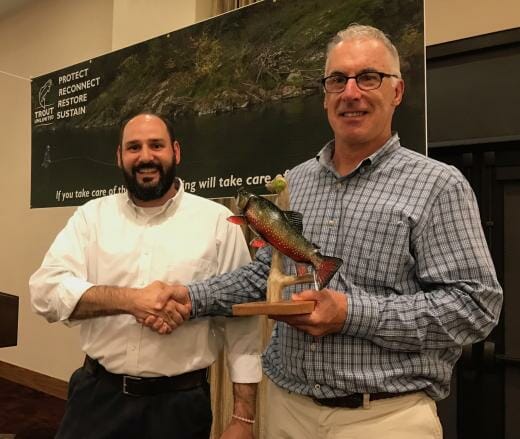
Kevin Parson, president of Deerfield River Watershed Chapter, receives the Gold Trout award from Jeff Yates, director of volunteer operations for Trout Unlimited. Trout Unlimited photo.
Hurricane Irene dumped more than 12 inches of rain on western Massachusetts in August of 2011. The flood and mismanaged post-flood construction efforts decimated many area streams.
Out of that disaster, the 349 Deerfield River Watershed Chapter was born to protect and restore the tailwater fishery and tributaries to that system.
From the outset, the chapter embraced the model of doing more together and being a good partner to leverage the strengths and skills of all involved. Early examples included helping the MA/RI Council raise more than $45,000 in just a few short weeks to help fund a land trust purchase 100 acres to protect prime brook trout habitat, as well as arrange for a boat donation to the Massachusetts Division of Fisheries and Wildlife to aid in their electro-fishing sampling efforts.
But it is through “angler science” efforts that the chapter truly made a mark, tackling the threat of a Federal Energy Regulatory Commission relicensing process to conduct studies in the Deerfield, prove spawning was taking place, and demand state and federal agencies require more stringent flow protections in the river from the hydro-electric dam facilities.
With only 100 members, this small, rural chapter is making big waves.
Silver Trout Award — Pemigewasset Chapter in New Hampshire
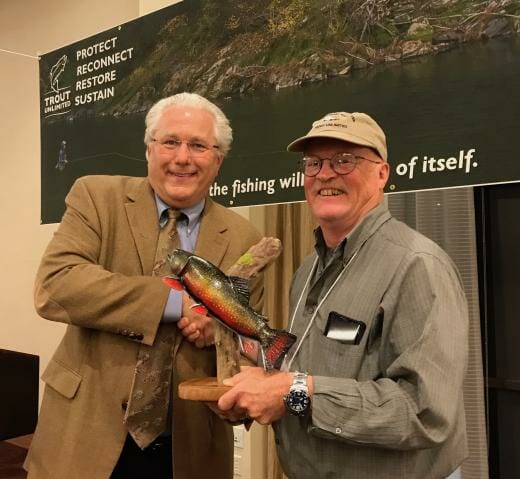
Dave Pushee, secretary of the Pemigewasset Chapter, receives the Silver Trout award from Mick McCorcle, Chair of the National Leadership Council. Trout Unlimited photo.
Nestled in 6,000 acres in the Pemigewasset and Merrimack river watersheds, the Beebe River is a native brook trout stronghold in New Hampshire. When The Conservation Fund purchased this tract in 2014, it was a crucial connective piece in a tapestry of protected state and federal forest and park lands and presented the Pemigewasset Chapter with a unique opportunity. While the stream habitat in this parcel was in good condition, there were five culverts posing barriers to fish passage and cutting trout off from critical spawning and rearing habitat on cold, clear tributary streams.
To tackle the challenge, the chapter helped build a powerful partnership with TU staff and more than a dozen other federal, state, municipal and private agencies and landowners to raise the funds, manage the effort and — over the course of three years — reconnect more than 6 miles of river.
Making the effort even more impactful, the chapter fully engaged and relied upon students and professors at Plymouth State University, developing the project, and the stream, as a resource which will educate and inspire future generations of budding scientists, biologists and ecologists.
Corporate Conservation Partner — Mendocino Redwood Company/Humboldt Redwood Company in California
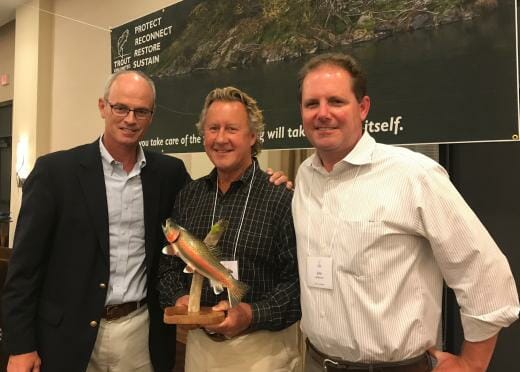
Chris Wood, Trout Unlimited CEO and President, presents the Corporate Conservation Partner award to Mike Jani (center) and John Anderson. Trout Unlimited photo.
Large timber companies and TU may not seem like natural partners in the fight to save California’s endangered coho salmon and coastal steelhead, but without such an effort, there might not be a future for these streams.
The unique regional initiative, known as the North Coast Coho Project, began in 1998 when the Mendocino Redwood Company (which later added the Humboldt Redwood Company) acquired hundreds of thousands of acres of lands in the headwaters of critical spawning streams spanning three counties in Northern California.
Working in partnership, this company and TU staff have focused on removing or improving the network of mostly unpaved logging roads that choke streams with sediment, opening access to more than 57 miles of habitat by removing culverts and other barriers to fish passage and adding hundreds of trees to streams to create diverse habitat needed by salmon and steelhead.
All told, the companies have invested $3.4 million in and with TU and inspired dozens of other timber interests to also be similarly good stewards of their lands and the important waters flowing through them.
Distinguished Service Award for Youth Education — Zoe Mihalas from North Carolina
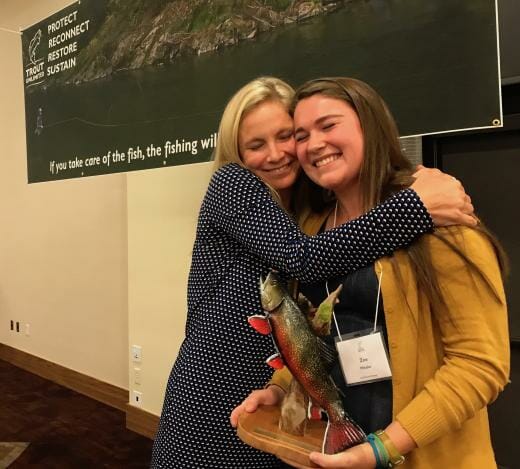
Beverly Smith, vice president of volunteer operations for Trout Unlimited, gives a hug to Zoe Mihalas while presenting her with the Youth Education award. Trout Unlimited photo.
Though she is not yet in college, Zoe Mihalas has likely helped shape and direct the future career paths of many young conservationists by sharing her own passion and dedication.
From a TU family, with a father who has held nearly every volunteer role possible, Zoe is a powerful voice for conservation in her own right as a board member of her local 034 — Pisgah Chapter in North Carolina.
Where Zoe is truly at her best is the way she inspires fellow youth around the country as a leader within TU’s Youth Leadership Council. Harnessing the skills of her generation, Zoe helps coordinate social media projects and contests, all meant to bring new teens to TU and get them to participate in events like camps and the TU Teen Summit.
She helped run a “Keep ‘em Wet” Instagram contest to educate teen anglers on catch and release, helped plan and carry out TU Teen Leadership Summits in Montana, Michigan, and Virginia, and has served on Youth Leadership Council strategic planning and outreach projects.
Zoe continues to build the momentum of youth engagement in TU and to set an example for us all to educate, empower and elect youth in our leadership.
Distinguished Service for Communications — Michigan Council TROUT magazine
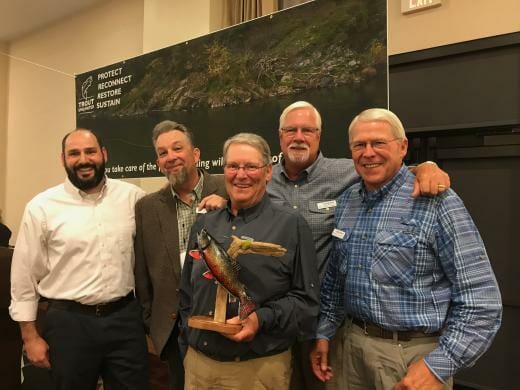
Members of the Michigan Council of Trout Unlimited celebrate being named recipients of the Distinguished Service for Communications award. Presented by Jeff Yates, director of volunteer operations for Trout Unlimited, on the far left. Trout Unlimited photo.
Four times a year, 6,000 Trout Unlimited members in Michigan are treated to stories of conservation success, entertained by fishing tales and tips, educated about important issues facing fisheries in the state and encouraged to get active and involved.
Michigan Trout, the quarterly magazine of the Michigan Council of TU, is a polished, professional and comprehensive communications piece that is firing on all cylinders and helping the council keep its members connected to the great work done in their name and on their behalf across the state — and beyond.
The articles — an equal mix of celebrations of chapter and council wins and cautionary tales of threats on the horizon — inspire members to learn more, get active, lend their voice to an advocacy effort, support the work financially, and offer their time and talent to the mission of TU in their home state.
Attractive in design to catch the eye, easy to read, and offering a diversity of topics and voices, Michigan Trout, does a great job of making all members feel part of something bigger than themselves and excited to be involved with an organization accomplishing so much to protect, reconnect and restore the state’s rivers and streams.
Distinguished Service for Leadership — Terry Turner from Oregon
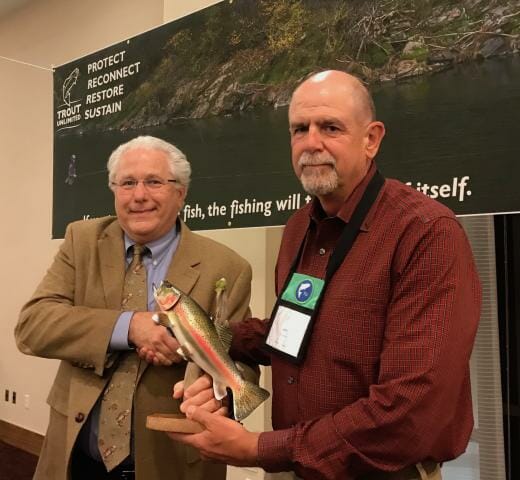
Mick McCorcle, chair of the National Leadership Council for Trout Unlimited, presented the Distinguished Service for Leadership award to Terry Turner. Trout Unlimited photo.
For more than two decades, Terry Turner has served in essentially every leadership role in TU — volunteering countless hours and driving hands-on conservation projects, powerful youth engagement events, high level partnerships, and important strategy and leadership development efforts.
From his early days as a leader with the 677 — Clackamas River Chapter to the past eight years as the Oregon Council Chair, Terry recognizes that to drive growth, change and impact he has to focus on communications, mentorship, and partnership. In all of these areas, he truly leads by example.
Terry’s passion comes especially from his desire to mentor young angler-conservationists. Through his personal efforts and support of an ever-growing number of youth events and camps, Terry is ensuring there are future leaders and stewards stepping up behind him to carry on the mission.
Of particular note has been Terry’s guidance of the Salmon Super Highway Partnership, where he has facilitated the integration of the many partners, including county, state, federal, agriculture, and watershed groups to strategically address fish passage on coastal rivers in Oregon.
Distinguished Service for Conservation — Gary Barrigar from Tennessee
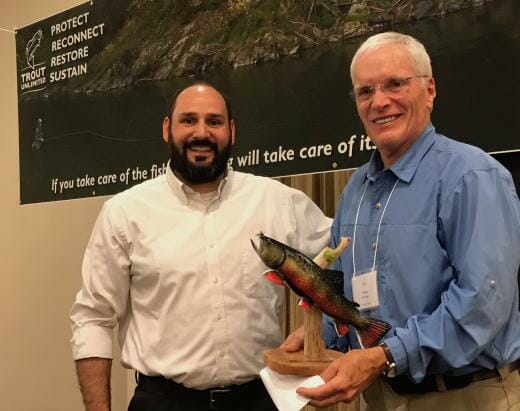
Jeff Yates, director of volunteer operations for Trout Unlimited, presented the Distinguished Service for Conservation award to Gary Barrigar. Trout Unlimited photo.
The legacy of brook trout conservation in northeast Tennessee cannot be told without the name Gary Barrigar. A board member and Conservation Chair of the 492 Overmountain Chapter for more than 20 years, Gary has organized and participated in over 50 river cleanups and engaged youth through fishing camps, his own high school science classroom and by bringing Trout in the Classroom to Tennessee.
Gary builds connections and relationships throughout the community, ties which lead to natural collaborations making possible projects like riparian restoration on Buffalo Creek, water quality and benthic community assessments in Dick Creek, and creation of the Watauga River Bluffs State Natural Area.
Spreading the mission beyond just TU, Gary was integral in founding two other conservation groups, Friends of Roan Mountain and the Boone Watershed Alliance to recruit and attract even more people to support clean water.
For the members in his chapter, the volunteers in his community and the partners in the many agencies and organizations he works with, Gary is a force for good and a shining example of what it means to be a TU volunteer.
Distinguished Service with the Veterans Service Partnership — Jim and Jo Borowski from Montana
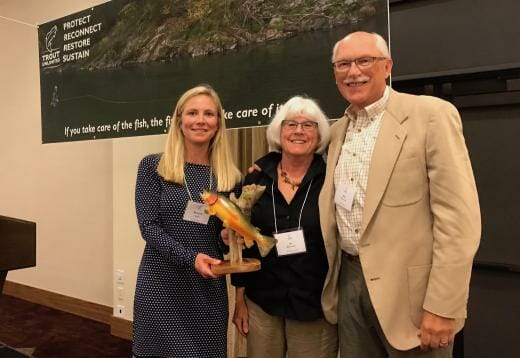
Beverly Smith, vice president of volunteer operations for Trout Unlimited, presents Jim and Jo Borowski with the Distinguished Conservation Award for Veterans Services. Trout Unlimited photo.
For Jim and Jo Borowski of the 085 Flathead Valley Chapter in Montana, honoring the service of our nation’s veterans and helping them and their families recover from the physical and emotional wounds of war is a passion that has become a calling.
Through their own chapter’s Veterans Service Partnership — which supports Warriors and Quiet Waters — to their dedication to national veterans programs and events, Jim and Jo have given so much time and care to the effort, and inspired many more to do so as well.
The chapter’s Veterans Fly-A-Thon Challenge is a powerful example of creating a community around our veterans. The couple and their chapter asked for help and were blown away when hundreds of people tied or donated a total of 6,817 flies to give to Warriors & Quiet Waters for their veteran’s outings.
On the TU annual veteran couples outing to Silvertip Ranch on Slough Creek, Jim and Jo serve as guides and companions for the week, building personal relationships and helping spouses come together to heal through fly fishing.
Jim and Jo embody the spirit and passion of the Veterans Service Partnership.
Jack Williams Award for Applied Conservation Science — Leslie Weldon. U.S. Forest Service

Leslie Weldon won the Jack Williams Award for Applied Conservation Science. Courtesy photo.
There are more than 193 million acres of National Forests and Grasslands in our country. As Deputy Chief of the National Forest System for the U.S. Forest Service, Leslie Weldon is responsible for managing and stewarding the land on behalf of us all.
The scale of that task alone is monumental, but when you couple it with the fact that these lands must be managed to provide outdoor recreation, protect watershed and forest health, prepare for important fire management, account for the economics of forest products, livestock grazing, energy and mineral development, and create and maintain forest roads and facilities, you begin to understand how vital it is to apply the best possible science to all decisions.
In her 36-year career with the Forest Service, beginning in 1981 as a summer hire monitoring seedlings, fighting forest fires, and surveying spotted owls in Washington state, Leslie has always ensured the plans and decisions made about our nation’s most important and ecologically diverse landscapes are rooted in the best data, have the best collaborators and partners at the table, and are made with the longest possible timeline as an outcome.
She is a conservation scientist in every sense of the term.
Communication Professional award — Rocky Barker from Idaho
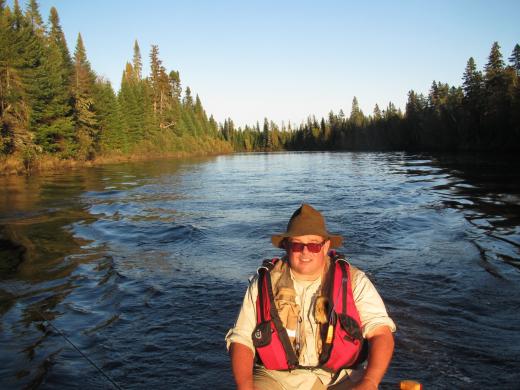
Rocky Barker won the Distinguished Service Award for Communication Professionals. Courtesy photo.
Rocky Barker, an author, writer and producer, has lent his powerful voice to the issues of river conservation for more than three decades.
His research for a series of editorials in the Idaho Statesman in 1997 calling for the breaching of four Snake River dams to save salmon has been heralded by many as the beginning of a river restoration movement and a tectonic shift from a national attitude that all dams are good and necessary.
Last year, his powerful reexamination of the issue of salmon, hatcheries and dams on the Columbia and Snake rivers and throughout the Pacific provided an influx of energy and focus that is helping drive the dam removal effort.
He co-authored the “Flyfisher’s Guide to Idaho”, and is the author of “Scorched Earth: How the Fires of Yellowstone Changed America” and “Saving All the Parts: Reconciling Economics and the Endangered Species Act”.
Above all else, Rocky is a lover of rivers and wild places and a true friend to TU and our mission—while he retired this year from the newspaper, he remains an active writer and supporter with his columns for the High Country News.
Conservation Professional — Tom Koerner from Wyoming
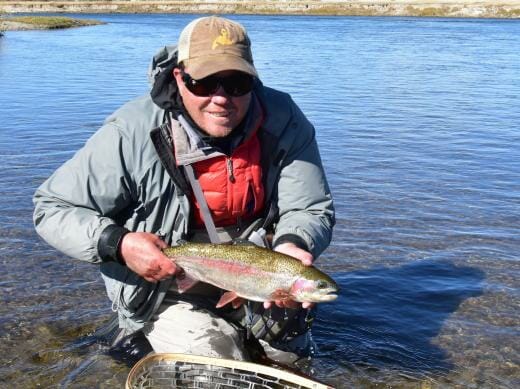
Tom Koerner, Project Leader for the Seedskadee National Wildlife Refuge in Wyoming was presented the Conservation Professional award. Courtesy photo.
It takes special people to live on the wind-swept, sagebrush benches of the Seedskadee National Wildlife Refuge in Wyoming. Tom Koerner not only loves the rugged landscape, he invests all of himself in managing the refuge as the project lead for the U.S. Fish & Wildlife Service.
While working with partners is part of the job, Tom is incredibly focused on ensuring that all of his work not only does what is best for the refuge, but also helps his colleagues and collaborators achieve their goals as well.
Whether working with TU staff and volunteers to build habitat structures and hatching boxes on the Big Sandy River, fencing off the riparian area around Red Creek, or conducting irrigation ditch electroshocking surveys to see how many fish were being lost from the Green River — and then finding the funds to fix the problem — Tom’s stick-to-it-ness and ability to work through issues make every project a success.
Importantly, as an excellent wildlife photographer, Tom’s work is frequently shared by federal agencies online and in social media, helping ensure all U.S. residents come to appreciate and love the public lands he manages. Tom couldn’t make the annual meeting so he sent a video thanking partners and explaining what the award means to him.


